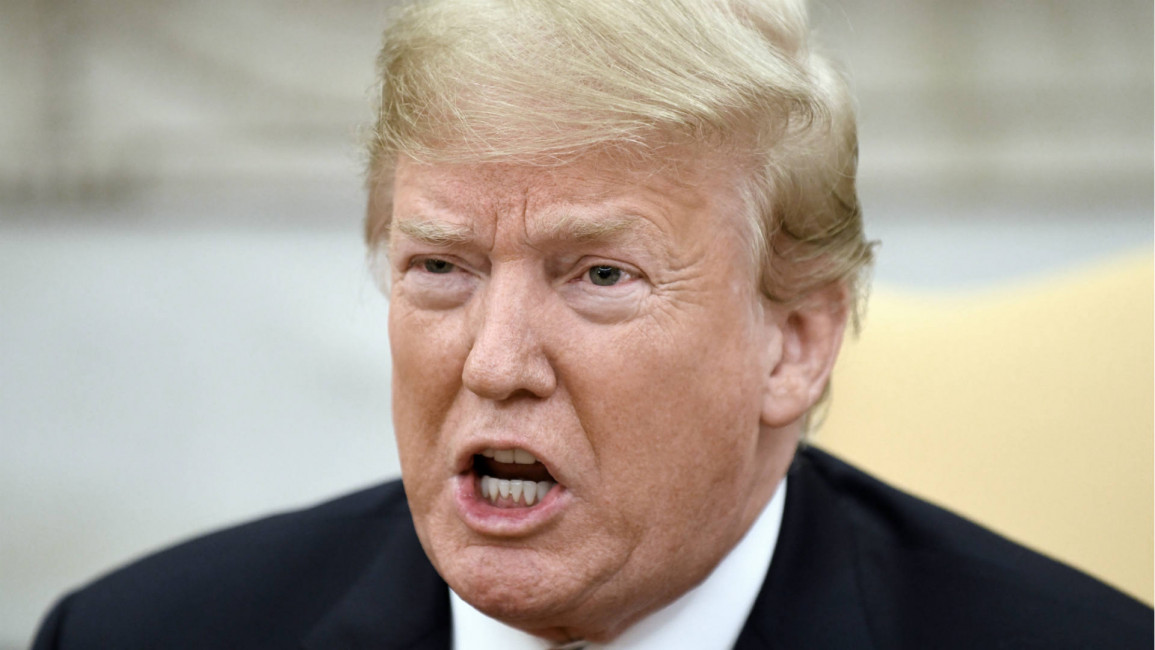Trump's unilateral sanctions against Iran take effect
The US reimposed a wave of unilateral, tough sanctions against Iran on Tuesday, bring into effect penalties that had been lifted under the 2015 nuclear accord.
Iranians have already seen the effects of the sanctions for months, with Iran's rial losing half its value since Trump announced the US would withdraw from the 2015 accord in May.
Trump blasted the accord signed under his predecessor Barack Obama yet again on Monday, calling it a "horrible, one-sided deal".
In an executive order on Monday, Trump said the sanctions seek to pile financial pressure on Tehran to force a "comprehensive and lasting solution" to Iranian threats, including its development of missiles and regional "malign" activities.
Twitter Post
|
The EU's diplomatic chief Federica Mogherini said the bloc, as well as European countries, opposed the US decision and were "determined to protect European economic operators engaged in legitimate business with Iran".
But many large European firms are leaving Iran for fear of US penalties, and Trump warned of "severe consequences" against firms and individuals that continued to do business with Iran.
Within hours of the sanctions taking effect, German automaker Daimler said it was halting its business activities in Iran.
The impact of the return of sanctions has also ramped up political tensions inside Iran, which has seen days of protests and strikes in multiple towns and cities over water shortages, high prices and wider anger at the government.
Severe reporting restrictions have made it impossible to verify the swirl of claims coming through social media.
Trump has previously said he was open to reaching a more comprehensive deal with Iran "that addresses the full range of the regime's malign activities, including its ballistic missile program and its support for terrorism".
Twitter Post
|
But Iranian President Hassan Rouhani has repeatedly spurned the offer.
"If you're an enemy and you stab the other person with a knife, and then you say you want negotiations, then the first thing you have to do is remove the knife," the Iranian leader said in an interview on state television.
"They want to launch psychological warfare against the Iranian nation," Rouhani said. "Negotiations with sanctions doesn't make sense."
Rouhani's government has taken emergency measures ahead of the reimposition of US sanctions to stem the collapse of the rial.
Iranian authorities recently also arrested 45 people, including the Central Bank's deputy chief, as part of a crackdown on financial fraud.
The crackdown followed Supreme Leader Ayatollah Ali Khamenei's orders to the country's president, parliament speaker and judiciary chief to work together to resolve the crisis.
Iran's markets were actually relatively buoyant on Tuesday, with the rial strengthening by 20 percent since Sunday, after the government relaxed foreign exchange rules and allowed unlimited, tax-free gold and currency imports.
The second phase of US sanctions will take effect 5 November and will block Iran's oil sales, which are due to cause more damage. However, several countries including China, India and Turkey have indicated they are not willing to entirely cut their Iranian energy purchases.
Agencies contributed to this report.

![Members of the Algerian delegation threw roses into the Seine [Getty]](/sites/default/files/styles/image_330x185/public/2024-07/GettyImages-2162980872.jpg?h=199d8c1f&itok=h_3o_TOL)

![The Libyans were arrested at a farm in Mpumalanga province east of Johannesburg [Getty]](/sites/default/files/styles/image_330x185/public/2024-07/GettyImages-2162903568.jpg?h=199d8c1f&itok=4Qzg79i1)